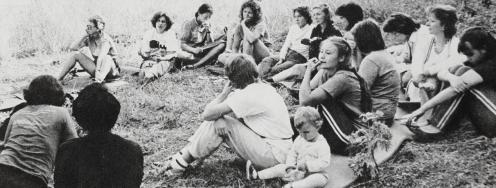Russia’s Political Posturing and the Iran Talks
On the radar: Unnamed officials making veiled threats; But Russia still has a stake in successful talks; P5+1 on track; Rethinking sanctions; U.S. and South Korea civil nuclear agreement; South Korea also hasn’t completed anti-nuclear terrorism pacts; Misplaced priorities; The summit after this; and Radiation from nuclear waste site continues.
On the radar: Unnamed officials making veiled threats; But Russia still has a stake in successful talks; P5+1 on track; Rethinking sanctions; U.S. and South Korea civil nuclear agreement; South Korea also hasn’t completed anti-nuclear terrorism pacts; Misplaced priorities; The summit after this; and Radiation from nuclear waste site continues.
March 20, 2014 | Edited by Lauren Mladenka and Geoff Wilson
Politics - “Russia may revise its stance in the Iranian nuclear talks amid tensions with the West over Ukraine,” reports Vladimir Isachenkov. A senior Russian diplomat says that Russia doesn’t want to use the negotiations to "raise the stakes," but may be forced to do so in response to actions by the United States and the European Union. Full article here. http://abcn.ws/1l71LI4
Interests - “Russia doesn't want a nuclear Iran either — not to mention a possible U.S. military strike to prevent it,” writes Michael Crowley for Time. Putin certainly does have the power to complicate, if not ruin, Obama’s diplomacy with Tehran… But while Putin has shown a cold-blooded streak, he has yet to prove himself a stupid strategist. And however much he might relish undermining Obama’s grand foreign policy project, blowing up diplomacy with Iran would be self-defeating, for two main reasons.
--“Reason one is that a nuclear Iran would be bad for Russia as well as America. Countries that belong to the nuclear club tend not to welcome new members, which diminish their strategic advantage. And while Russia has better relations with Iran than does the U.S, Iranian bombs would also be much closer to its borders than to American ones: the northern tip of Iran is roughly 160 km from southernmost Russia... Reason two is that the failure of diplomacy with Iran would likely lead to the thing Putin hates most: American-led military action.” Read the full story here. http://ti.me/1gSYpBu
Sign up for this right now - The Center for a New American Security will be releasing a weekly "Iran Nuclear Digest" every Thursday recapping the week's most important news, commentary and reports. Subscribe to the email Digest here. http://bit.ly/1eVFeql
Progress made - “Iran and world powers completed Wednesday what both sides called a "substantive" round of nuclear talks, with Iran's foreign minister saying he saw ‘signs’ a comprehensive deal will be reached,” writes Simon Sturdee for AFP. “A senior US administration official in Vienna said that the latest two days of talks saw the parties ‘really get down to business and into the details’, with the meeting ‘professional, respectful and intense. Negotiators entered into ‘the substance of key issues more than we have ever previously,’ the official said, making ‘progress in identifying where the gaps exist and working to bridge those gaps’. Full story here. http://bit.ly/1nGoTPt
Committed to an agreement - “Positions between Iran and world powers diverge widely in some areas but Iranian negotiators seem ‘very committed’ to reach an agreement on the country's disputed nuclear program,” reports Fredrik Dahl. Full story in Reuters. http://reut.rs/1dtj5za
Tweet - @mattduss: Weird. Somehow the Iran nuclear talks made progress without the "help" of a new sanctions bill. http://nyti.ms/1ozz6KP
Sanctions in perspective - “Currently, the United States is enforcing no fewer than 24 separate sanctions regimes directed at targets ranging from the Balkans to Zimbabwe,” an economic weapon that is “more popular than ever, mostly because of a wholly mistaken belief that it makes the targets do what we want,” writes Andrew Cockburn in the Los Angeles Times. According to sanctions proponents, the strategy “brought the Tehran regime to its knees, causing such pain that it eventually cried ‘uncle’ and crawled to the table. Unfortunately, this is not what happened. Sanctions did not bring Iran to the table. Not only Iranian officials but other undeniably objective observers concur that the reason negotiations have commenced is emphatically not because Iran could endure the pain no longer.”
--The author argues that, in the Iranian case, it was U.S. and Iranian willingness to compromise that allowed for process in nuclear talks, not simple compellence by sanction. Full article here. http://lat.ms/1kLVLSn
Nuclear agreement - “South Korea and the United States on Tuesday put into effect an exchange of notes for the two-year extension of a bilateral agreement on Seoul's civil nuclear energy use,” the Yonhap News Agency reports. “Seoul and Washington had agreed last year to extend the bilateral pact, also-known as the ‘123 agreement,’ until 2016, which was to expire this week. The two allies have been negotiating on the renewal of the accord since 2010 but have failed to renew it… Seoul has been seeking to win rights to enrich uranium and reprocess spent nuclear fuel in a bid to help assist in the country's export of nuclear power plants, but Washington has been reluctant to agree to that due to proliferation concerns.” Full report here. http://bit.ly/NxaWmj
The U.S. hasn’t done it either - “South Korea's president on Tuesday criticized lawmakers for failing to approve an anti-nuclear terrorism bill,” Global Security Newswire reports. “The legislation would broaden the definition of atomic-related crimes and increase punishments for them. South Korea, at the 2012 global Nuclear Security Summit in Seoul, committed to ratifying two international anti-nuclear terrorism pacts before the next summit, which is happening next week in The Hague, Netherlands.”
--“President Park Geun-hye said ‘it would cause great damage to our national interests if we fail to keep our promise, let alone taking the lead ahead of others, at a time, when the world is watching North Korea's nuclear threats.”... Park said it was "truly regrettable" that political tussles had stalled progress on the nuclear-security bill, whose passage is necessary for Seoul to ratify the two international treaties. Opposition lawmakers from the Democratic Party are tying passage of the legislation to a separate bill for which they expect a concession, according to the news agency.” Full story here. http://bit.ly/1gCDCBm
Tweet - @38NorthNK: Jeffrey Lewis (@ArmsControlWonk) offers an alternate view on the tunnels at #NorthKorea's nuclear test site: http://bit.ly/NxcFb6
Priorities - “We live in strange times indeed,” writes Madelyn Hoffman for The Record. “In the past few months, the U.S. Congress has failed to extend unemployment benefits for 1.3 million people and has passed legislation that will cut $8.6 billion in food stamps during the next 10 years, affecting 850,000 households in a third of the states.”
--“At the same time, the 2015 budget shows a 7 percent increase in spending on nuclear weapons, from $18.6 billion to $19.4 billion – almost $1 billion. While the overall amount allocated for nuclear weapons is greater than last year, the funds dedicated to nuclear nonproliferation programs – programs to reduce the numbers of available warheads or securing so-called "loose nukes" was cut, making more dollars available to either build new nuclear weapons hardware or spend billions to modernize old ones, such as the B-61 bomb. If this budget is accepted, it will show again that our nation’s priorities favor increased spending on weapons of mass destruction at the expense of programs that help people survive tough times and keep food on their tables.” Read the full piece here. http://bit.ly/1miWI7Q
What is next for NSS - “As the Netherlands prepares to host the 2014 Nuclear Security Summit from March 24-25, the end of the forum itself is also approaching,” writes Andrew Szarejko for Nukes of Hazard. “As with previous summits, the focus of this year’s summit will be on preventing nuclear terrorism. The United States expects the Summit to advance this goal in three key areas: further commitments to dispose of highly enriched uranium (HEU) and plutonium, efforts to strengthen the global ‘nuclear security architecture,’ and ‘assurances,’ or voluntary actions that states can take to demonstrate to the international community that they are maintaining high standards for nuclear security without disclosing sensitive information.”
--“Given the progress being made—even if being made in fits and starts—the 2014 summit and the next two years of preparation for the 2016 summit should be used to build consensus for further summits or for a similar multilateral forum through which states continue to advance the cause of securing and eliminating their nuclear and radiological materials. If a global nuclear security architecture is the long-term goal, there needs to be a body pushing states toward it.” Read the full piece here. http://bit.ly/1fJUXrW
More radiation at WIPP - “Sensors at a U.S. atomic-waste repository in New Mexico have detected a second release of radiation in less than a month,” Global Security Newswire reports. “A brief spike in radioactivity readings occurred on March 11 at the Waste Isolation Pilot Plant, the Energy Department said on Tuesday. The incident followed a Feb. 14 leak that exposed 17 personnel to contaminants and rendered underground portions of the site inaccessible to workers.”
--“The department said the quantity of newly escaped radiation was ‘very small,’ and appeared unlikely to affect the site's surroundings, employees or neighboring communities. Specialists suggested that radioactive material from the earlier leak had accumulated in the facility's air shafts and later became dislodged, according to an Energy news release. The source of the February escape remains unclear, but the site's operator previously suggested that a tunnel collapse or forklift accident might have breached a waste container.” Read the full report here.http://bit.ly/1ozqOCo
Events:
--“Is the Indian Nuclear Tiger Changing Its Stripes? Data, Interpretation and Fact.” Discussion with Toby Dalton and Guarev Kampani. March 21 at 9:30 at the Atlantic Council, 12th floor, 1030 15th St. NW. RSVP here. http://bit.ly/1gysF8k
--“Implications on Deterrence Stability and Escalation Control of Tactical Nuclear Weapons in South Asia.” Discussion with Jeffrey McCausland. March 26 from 12:30-2:30 at the Stimson Center, 1111 19th St. NW, 12th floor. RSVP here. http://bit.ly/1kBZQbR
--“Humanitarian Impacts of Nuclear Weapons Initiative and its Relationship to the Non-Proliferation Treaty.” Discussion with Ira Helfand and Guakhar Mukhatzhanova. March 31 from 9:30-11:30 at Carnegie Endowment for International Peace, 1779 Massachusetts Ave. NW. RSVP here. http://bit.ly/NxfOaY
--“Creating a Legacy for the Nuclear Security Summit.” Discussion with Kenneth Luongo and Sharon Squassoni. April 2 from 12:00-1:30 at the Center for Strategic and International Studies, 2nd floor conference room A, 1616 Rhode Island Ave. NW. RSVP by email to PPP@csis.org



